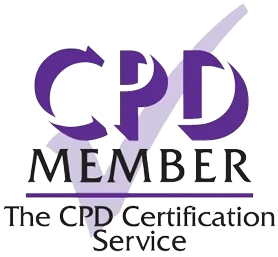29 Mar 2025
Recommended
Minimum 30 mins
Course
Access
Certification
Voiceover

The Stroke Awareness course provides healthcare professionals with essential knowledge to recognise, manage, and support individuals affected by stroke. As a leading cause of disability and mortality in the UK, stroke requires prompt recognition and specialised care to improve patient outcomes and quality of life.
This comprehensive course covers the types, causes, and pathophysiology of strokes, with an emphasis on early detection using tools such as the FAST protocol and the National Institutes of Health Stroke Scale (NIHSS). Participants will explore evidence-based approaches to acute stroke management, including thrombolytic therapy and the critical role of multidisciplinary care. The course also addresses long-term rehabilitation, risk reduction strategies, and the importance of patient education and public health initiatives.
Aligned with the latest UK guidelines, this course equips participants with the skills to respond effectively to one of the most time-critical medical emergencies and enhance the quality of stroke care.

 £20
£20
Learning Outcomes.
By the end of this course,participants will be able:
To identify the different types of strokes (ischaemic and haemorrhagic) and understand their pathophysiological mechanisms.
To utilise assessment tools, such as the NIHSS, to evaluate stroke severity and guide clinical decisions.
To recognise early stroke signs and symptoms and apply the FAST protocol for prompt diagnosis.
To implement evidence-based strategies for acute stroke management, including thrombolytic therapy and supportive interventions.
To understand the role of multidisciplinary teams in acute care and rehabilitation for stroke patients.
To develop secondary prevention strategies to reduce stroke recurrence through risk factor management and patient education.
Course
Contents.
01
Overview of stroke types, causes, and the urgency of timely intervention.
03
Recognising symptoms using the FAST protocol and utilising diagnostic tools like CT, MRI, and stroke severity scales.
05
Guidelines for physical, cognitive, and emotional recovery, and long-term support strategies.
08
Collaboration among healthcare professionals to ensure holistic and patient-centred care.

06
Risk factor identification, lifestyle modifications, and promoting public health awareness.
09
Strategies for reducing recurrence, including medication adherence and behavioural changes.
02
Brain circulation, mechanisms of ischaemic and haemorrhagic strokes, and their impacts.
04
Evidence-based treatment approaches, including thrombolytic therapy, imaging, and team-based care.
07
Community-level campaigns for stroke awareness and early detection.
10
Empowering patients and their families to manage recovery and prevention effectively.
The Stroke Awareness course equips healthcare professionals with the knowledge and skills needed to improve outcomes for individuals affected by stroke. By focusing on early recognition, evidence-based treatment, and prevention strategies, the course ensures participants are prepared to provide timely, high-quality care. Aligned with UK guidelines, it emphasises multidisciplinary approaches, public health initiatives, and patient education to reduce the impact of stroke on individuals and communities.
 Summary
Summary


